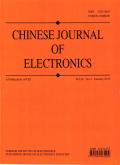FedCSA: Enhancing Federated Unlearning Efficiency Through Adaptive Clustering Under Data Heterogeneity
IF 3
4区 计算机科学
Q3 ENGINEERING, ELECTRICAL & ELECTRONIC
引用次数: 0
Abstract
In the digital era, escalating concerns over personal privacy and social security have led to the advocacy for the “right to be forgotten”, a principle that empowers individuals to request the deletion of their personal data from online platforms. Consequently, machine unlearning (MU) has been proposed as a method for targeted data deletion within machine learning models. However, MU encounters difficulties in distributed learning environments, such as federated learning (FL), where direct access to data is restricted. Federated unlearning (FU) has been developed in response, aiming to facilitate the process of data deletion requests from clients within FL frameworks. Despite advancements, FU methods based on approximate unlearning present a risk of potential data breaches, while methods reliant on retraining necessitate either complete or repeated retraining of clients, which is inefficient. Addressing these challenges, we introduce the federated cluster slicing algorithm (FedCSA), a novel FU strategy that achieves precision and efficiency in data unlearning. FedCSA organizes clients into distinct slices based on model deviation values, facilitating targeted retraining of local models upon unlearning requests. This method not only ensures consistency in the independent and identically distributed degree across slices but also improves unlearning efficiency and maintains global model accuracy. Moreover, FedCSA features an adaptive clustering mechanism that autonomously determines the optimal number of slices, optimizing the unlearning process. Our empirical analysis, conducted across the MNIST, Fashion-MNIST, and CIFAR-10 datasets, underscores FedCSA's superior performance. FedCSA exhibits a fourfold increase in unlearning efficiency compared to traditional retraining methods. Furthermore, when juxtaposed with the sharded, isolated, sliced, and aggregated technique, FedCSA demonstrates a 4%–5% enhancement in global model accuracy. These findings corroborate the efficacy of FedCSA.FedCSA:基于数据异构的自适应聚类提高联邦学习效率
在数字时代,对个人隐私和社会安全的担忧不断升级,导致了“被遗忘权”的倡导,这一原则赋予个人要求从在线平台删除其个人数据的权利。因此,机器学习(MU)被提出作为机器学习模型中目标数据删除的一种方法。然而,MU在分布式学习环境中遇到了困难,例如联邦学习(FL),其中直接访问数据受到限制。为此,联邦学习(FU)被开发出来,旨在简化FL框架内客户端数据删除请求的处理。尽管取得了进步,但基于近似遗忘的FU方法存在潜在数据泄露的风险,而依赖于再培训的方法需要对客户进行完整或重复的再培训,这是低效的。为了解决这些挑战,我们引入了联邦聚类切片算法(FedCSA),这是一种新颖的FU策略,可以实现数据学习的精度和效率。FedCSA根据模型偏差值将客户端组织成不同的切片,便于在取消学习请求时对局部模型进行有针对性的再训练。该方法既保证了切片间独立同分布程度的一致性,又提高了学习效率,保持了模型的全局精度。此外,FedCSA具有自适应聚类机制,可自主确定最优切片数量,优化学习过程。我们对MNIST、Fashion-MNIST和CIFAR-10数据集进行了实证分析,强调了联邦快递的卓越性能。与传统的再培训方法相比,FedCSA的学习效率提高了四倍。此外,当与分片、隔离、切片和聚合技术并置时,FedCSA在全局模型精度方面提高了4%-5%。这些发现证实了FedCSA的有效性。
本文章由计算机程序翻译,如有差异,请以英文原文为准。
求助全文
约1分钟内获得全文
求助全文
来源期刊

Chinese Journal of Electronics
工程技术-工程:电子与电气
CiteScore
3.70
自引率
16.70%
发文量
342
审稿时长
12.0 months
期刊介绍:
CJE focuses on the emerging fields of electronics, publishing innovative and transformative research papers. Most of the papers published in CJE are from universities and research institutes, presenting their innovative research results. Both theoretical and practical contributions are encouraged, and original research papers reporting novel solutions to the hot topics in electronics are strongly recommended.
 求助内容:
求助内容: 应助结果提醒方式:
应助结果提醒方式:


